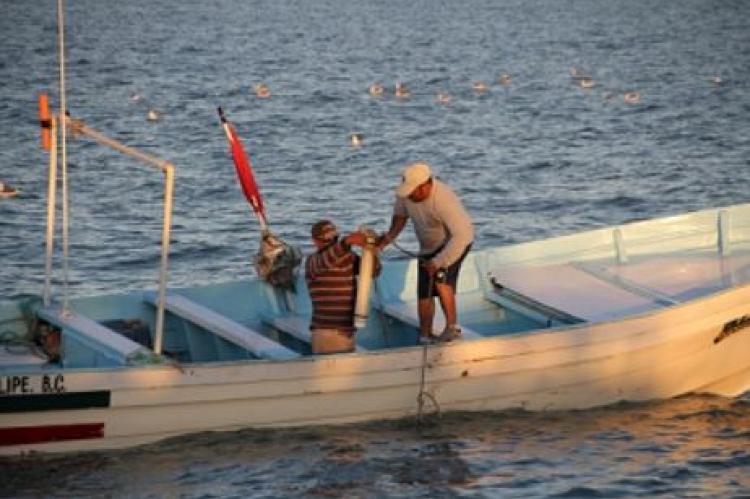World's smallest cetacean continues to be at risk of extinction
A new study using acoustic detectors has documented a yearly decline of 34 percent in the population of Mexico's critically endangered vaquitas.
Publishing their findings in Conservation Biology, Armando Jaramillo-Legorreta of Mexico’s Department of the Environment and Natural Resources (SEMARNAT) said, “We are witnessing the end of a species, if the illegal fishing continues.”
For the new study, researchers incorporated one of the most sophisticated networks of acoustic detectors and used the acoustic array to monitor the population by listening for the vaquita's calls. A new abundance estimate using acoustic monitoring that builds on last year’s abundance estimate is expected out soon.
A companion paper published in Conservation Letters estimates the population to be about 60 individuals last year, based on both acoustic and visual surveys.
The vaquita's population has dwindled to this extent because it frequently ends up as bycatch in gillnets meant for the totoaba, a fish whose swim bladder is highly prized in China. According to a report by the Environmental Investigation Agency, totoaba bladders are now worth up to $5,000 per kilogramme and the price can shoot up to $100,000 on the black market in China.
Despite the Mexican government's actions to protect the animal – by setting aside half of the vaquita's range as a no-fishing zone, implementing a two-year ban on gillnet fishing in April 2015 and compensating fishermen and related industries – both the vaquita and totoaba continue to be on the endangered species list.
The research findings showed that the vaquita population's decline had instead accelerated, along with a resumption of illegal gillnet fishing for totoaba. Three vaquitas killed in gillnets were recovered during surveillance activities last spring. In addition, alarming quantities of totoaba gillnets have been found and removed in recent months.
“This pioneering research revealed just how sharply vaquitas are declining, and how urgent the situation has become,” said Cisco Werner, director of NOAA Fisheries’ Southwest Fisheries Science Center. “Science may have bought the vaquita some precious time by supporting the extra protections. But we are now on the verge of losing the species altogether.”


